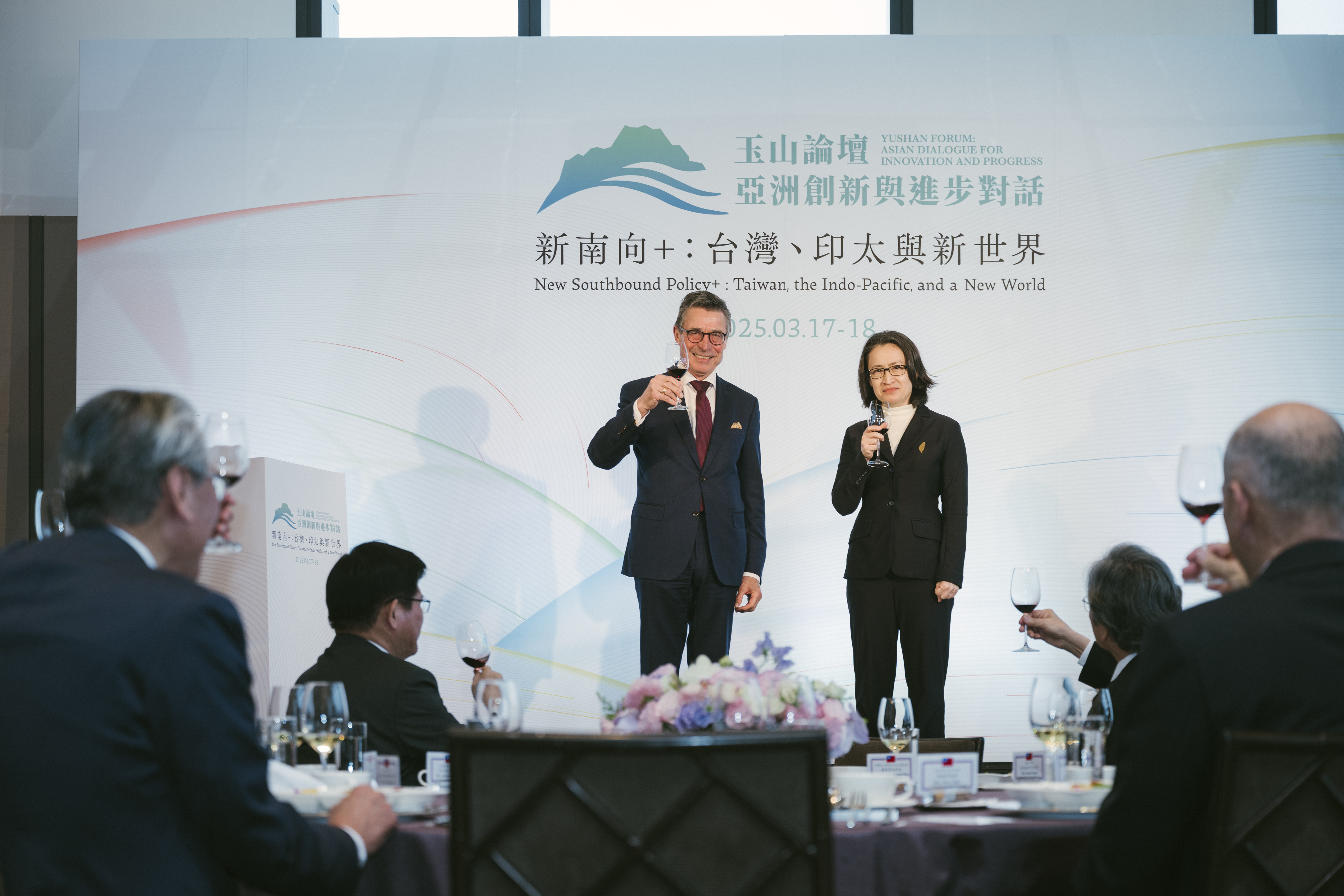
Day one of The 8th Yushan Forum: New Southbound Policy+: Taiwan, the Indo-Pacific, and a New World, co-organized by the Taiwan-Asia Exchange Foundation (TAEF) and the Ministry of Foreign Affairs (MOFA), successfully concluded today. Today’s luncheon was hosted by Vice President Hsaio Bikhim featuring Anders Fogh Rasmussen, Former Prime Minister of Denmark and Chairman of the Alliance of Democracies Foundation. The dinner was hosted by Minister of Foreign Affairs Lin Chia-Lung, featuring guest speaker Anna Fotyga, Former Minister of the Ministry of Foreign Affairs of the Republic of Poland.
In the welcome speech, Vice President Hsiao Bi-khim thanked Foreign Minister Lin for supporting the forum for the eighth year, highlighting it as a crucial platform for strengthening ties with NSP partner countries and expanding global engagement. Taiwan plays a key role in technological progress despite its small size, contributing to smart solutions, net-zero transition, healthcare, and supply chain resilience. In a time of both continuity and upheaval, Taiwan is committed to maintaining peace and stability, a stance reinforced by global leaders, including G7 discussions. Vice President Hsiao also vowed to enhance defense spending, and Taiwan is implementing a whole-of-society defense strategy, strengthening resilience in energy, cybersecurity, finance, and critical infrastructure. She stresses that Taiwan aims to remain an indispensable global trade partner, with “trust and reliability” at the core of its industrial policy.
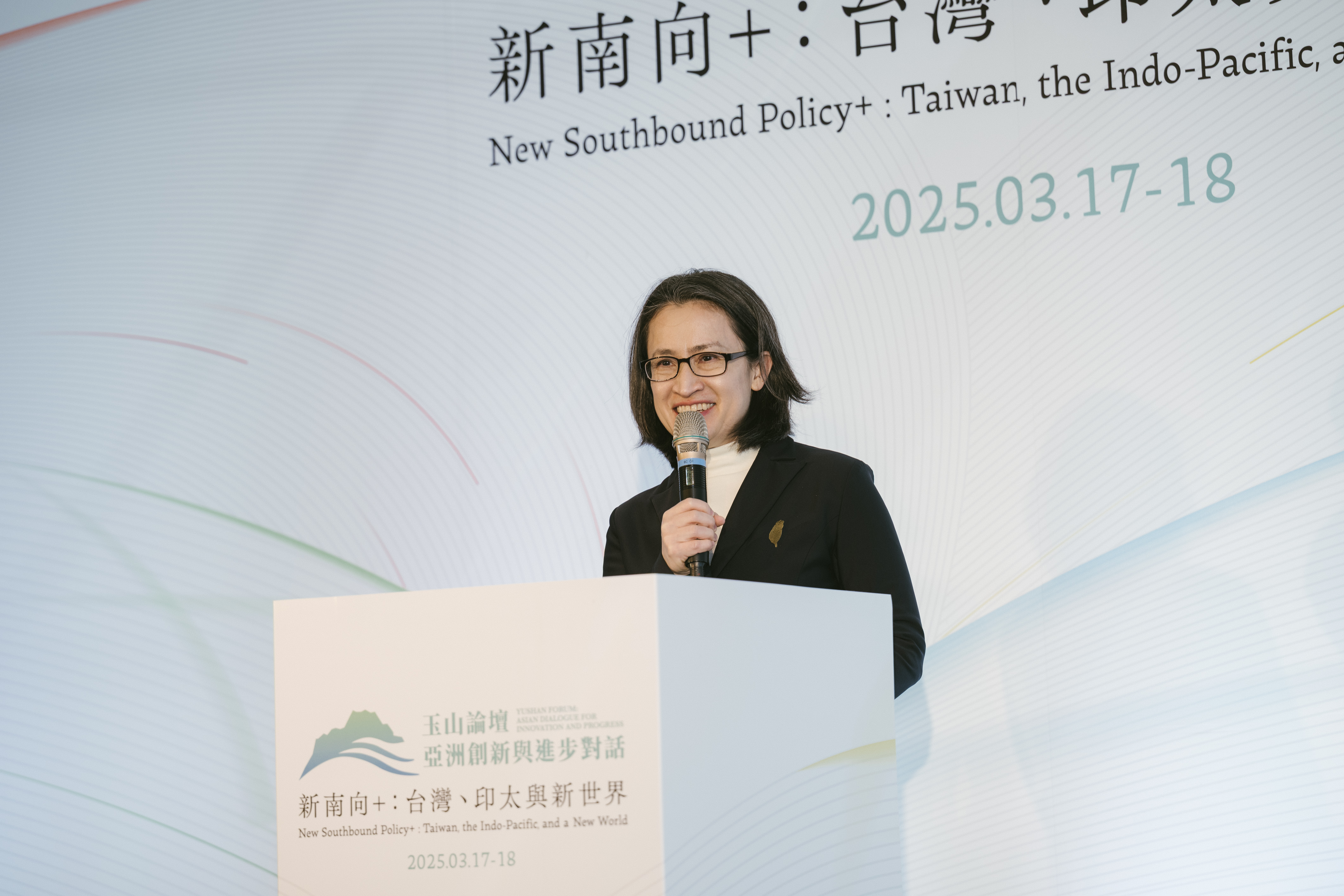
Anders Fogh Rasmussen stressed that the U.S. has long been a global beacon of peace and prosperity, but democracy is now under threat as historical lessons are ignored. Europe, once reliant on cheap Russian oil, Taiwanese goods, and American security, must recognize that "freedom is not free" and take responsibility for its own defense. He argued that Trump’s stance is pushing Europe toward a necessary mindset shift, as Russia’s aggression in Ukraine signals a broader threat—"Ukraine today, Taiwan tomorrow." Taiwan’s support for Ukraine strengthens its own future security, and the best response lies in alliances built on shared values and mutual support. Europe must enter a "golden era" of cooperation with Taiwan, expanding ties in technology and defense. He honored two Taiwanese soldiers who died in Ukraine and emphasized that Europe can learn from Taiwan’s resilience, including its "porcupine strategy." In a volatile world, standing with Taiwan is not just about short-term economic interests but about defending freedom together.
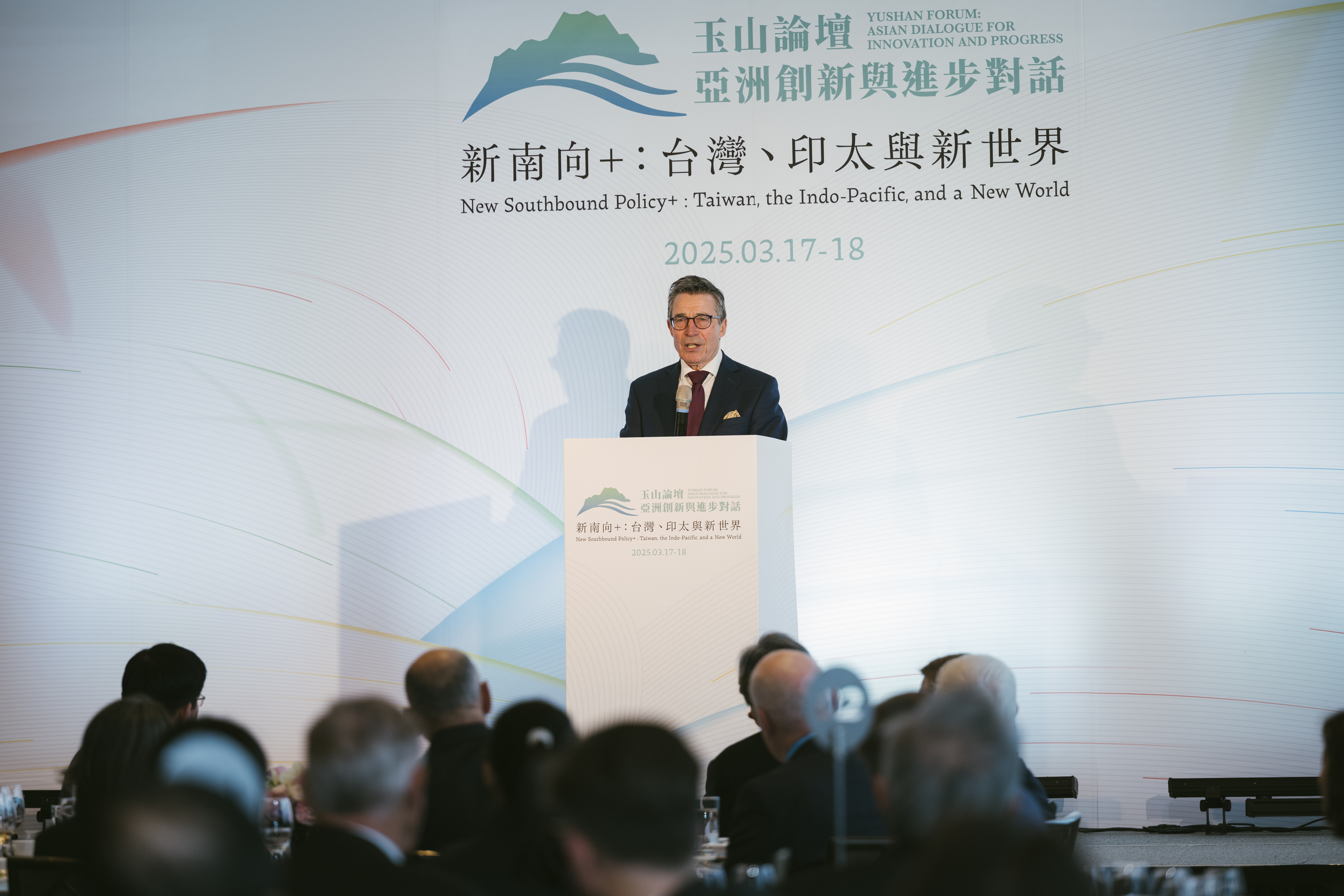
The forum featured four sessions addressing pressing regional and global challenges, covering topics such as smart solutions for international net-zero transition, advancements in smart healthcare and the development of a regional health community, strengthening chip supply chain resilience for a sustainable global semiconductor industry, and how smart transportation leverages digital innovation to connect the world.
At the forefront of the international net-zero transition, Session 1 titled “Smart Solutions—Responding to New Trends in International Net-Zero Transition” gathered global industry leaders and experts to explore innovative strategies for achieving sustainability goals. Moderated by Chin-Ching Liu, Minister of the National Development Council, the session featured distinguished panelists including Dr. Jia-Yush Yen, President of the Taiwan Intelligent Zero Carbon Building Alliance; Mr. Brett O’Riley, Member of the APEC Business Advisory Council, New Zealand; Dr. Kou-I Szu, Chairman of the Taiwan Automation Intelligence and Robotics Association; Mr. Vikrom Kromadit, Chairman of Amata Corporation PCL and the Amata Foundation Thailand; Mr. Patrick P. Chen, Chairman of the Taiwan Machine Tool & Accessory Builders’ Association; Mr. Nobuo Tanaka, Chair of the ICEF Steering Committee; and Dr. Tzuo-Liang Luo, General Manager of Expetech Co. Ltd. Discussions focused on smart city development, the global energy and climate crisis, and adapting to geopolitical shifts, with an emphasis on Taiwan’s smart manufacturing technologies. Panelists highlighted the role of digital transformation in carbon neutrality and explored emerging trends in smart manufacturing solutions that drive net-zero innovations. The session underscored the need for cross-sector collaboration to build a resilient and sustainable future.
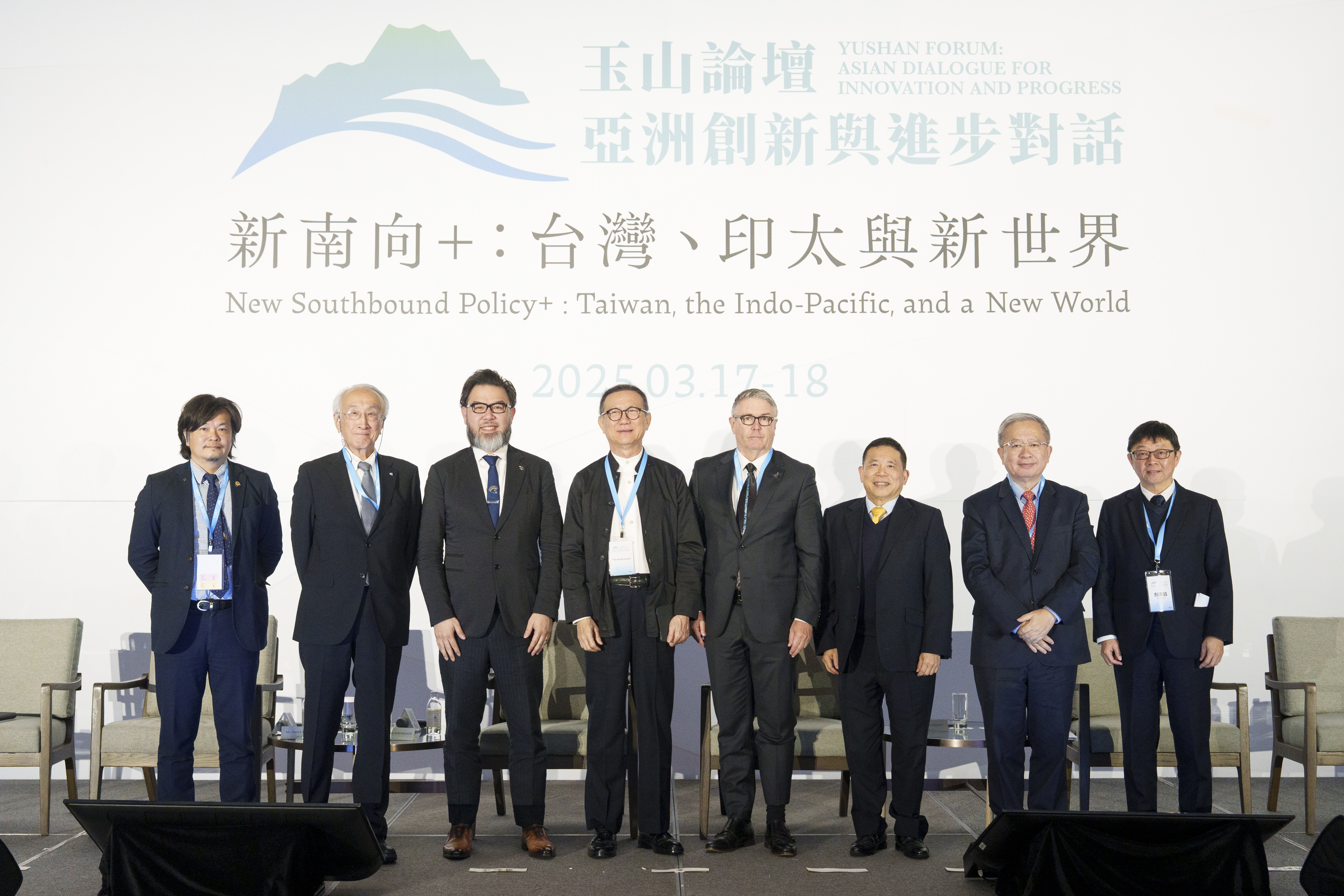
Session 2, “A New Era in Smart Health Care—Building a Regional Health Community,” convened global health leaders and experts to explore the integration of smart technology in healthcare and the development of a collaborative regional health network. Moderated by Hon. Dr. Tai-Yuan Chiu, Taiwan Minister of Health and Welfare, the session featured distinguished speakers including Dr. Ching-Yi Lin, Taiwan Deputy Minister of Health and Welfare; Tony Clement, Former Minister of Health, Government of Canada; Mr. Hsuan-Lung Liu, Assistant Vice President, International Business Group, Chunghwa Telecom Co., Ltd.; Dr. Shih-An Chen, Honorary Superintendent, Taichung Veterans Hospital and Industrial Technology Research Institute (ITRI) Laureate; Dr. Sheng-Mou Hou, Superintendent, Sing Kong Wu Ho-Su Memorial Hospital; and Dr. Chien-Chang Lee, Chief Information Officer, Taiwan Ministry of Health and Welfare. Discussions focused on the transformative role of AI, telemedicine, and data-driven healthcare, emphasizing the development of advanced digital health infrastructure and cross-sector collaboration. Panelists highlighted the importance of Taiwan’s New Southbound health cooperation efforts in expanding medical accessibility, streamlining healthcare services, and fostering a more resilient, interconnected regional health community.
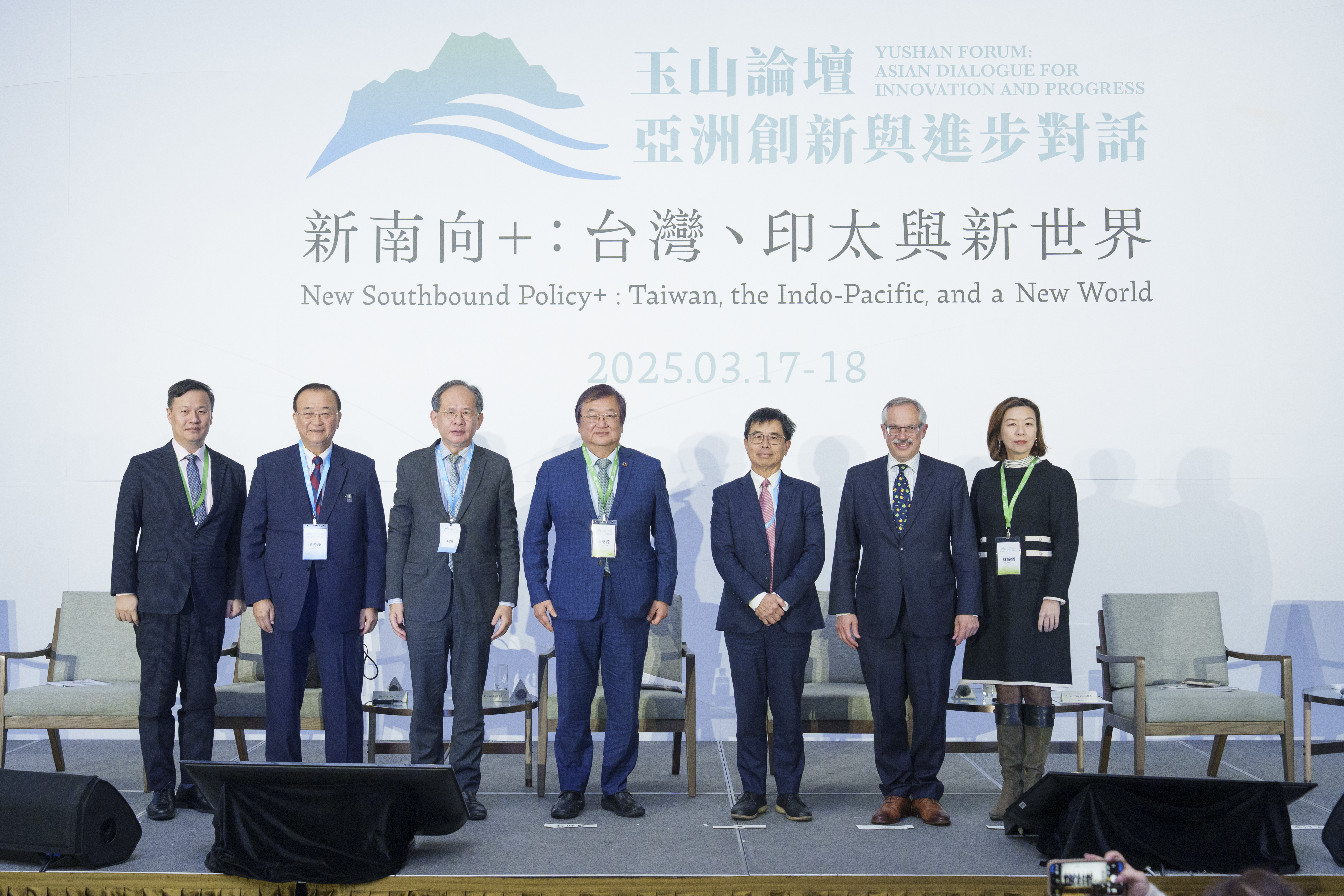
Session 3, “Chip Supply Chain Resilience—Cocreating a Sustainable Global Semiconductor Industry,” brought together high-level policymakers and industry leaders to address the challenges and opportunities in securing a robust and sustainable semiconductor supply chain. Moderated by Hon. Cynthia Kiang, Taiwan Deputy Minister of Economic Affairs, the session featured distinguished speakers including Akira Amari, Honorary Chairman of Japan’s Liberal Democratic Party’s Semiconductor Strategy Promotion Parliamentarian Alliance and Former Member of the House of Representatives; Alfredo E. Pascual, Independent Director of BDO Unibank, Inc. and former Secretary of the Philippines’ Department of Trade and Industry; Terry Tsao, Global Chief Marketing Officer and President of Taiwan, SEMI; Pavel Fischer, Chairman of the Committee on Foreign Affairs, Defence and Security of the Senate of the Czech Republic; Andrzej Dycha, Chairman of the Board/CEO, Polish Investment and Trade Agency; and John Lee, Managing Director of Merck Group in Taiwan. Discussions centered on enhancing semiconductor supply chain resilience through strategic alliances, investment in advanced manufacturing, and international collaboration, reinforcing the industry's role as a cornerstone of global economic and technological security.
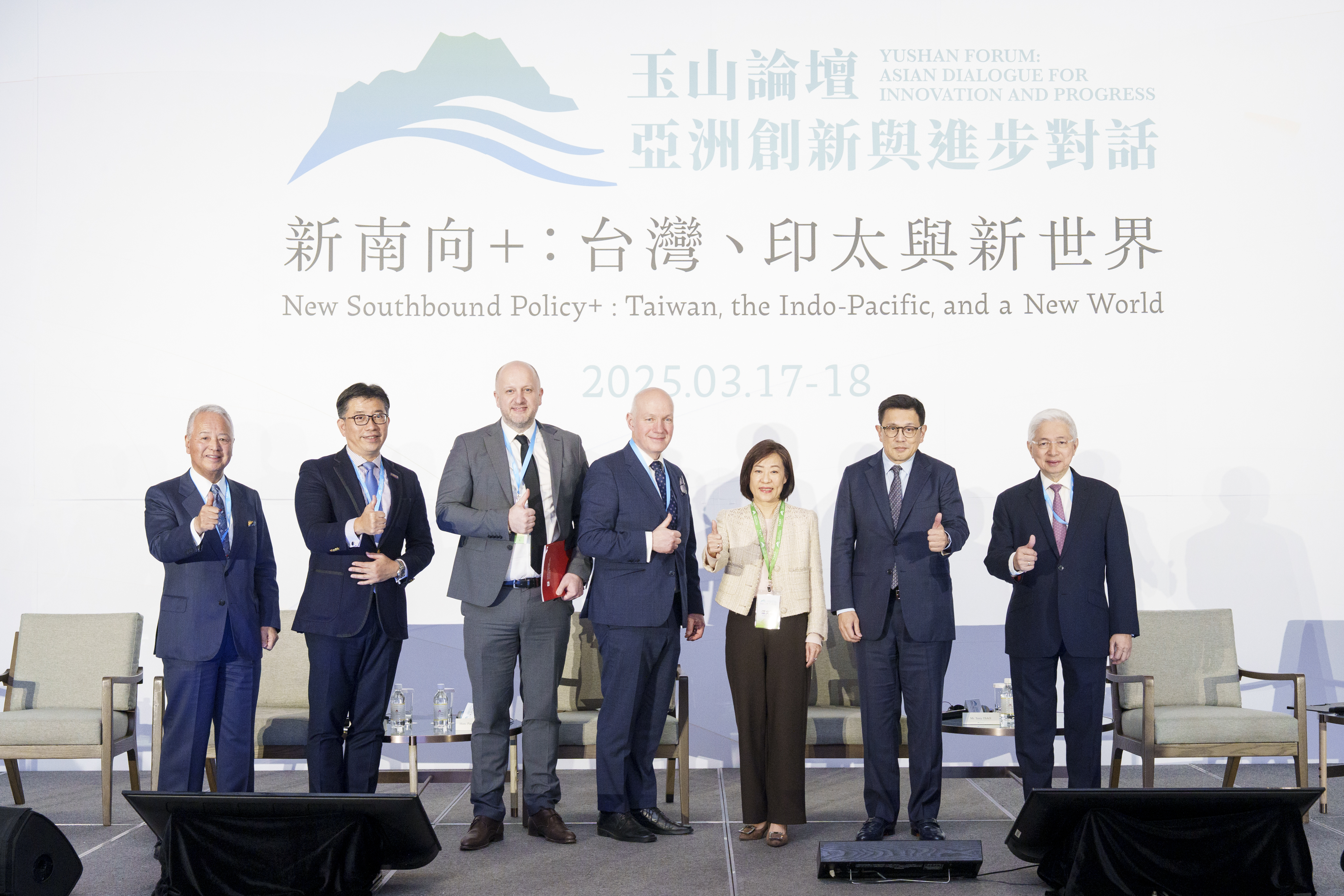
Session 4, New Benchmarks in Smart Transportation – Connecting the World with Digital Innovation, convened key industry leaders to explore cutting-edge advancements in transportation technology and digital connectivity. Moderated by Meng Feng Wu, Chairman of the Taiwan Telematics Industry Association, the session featured expert insights from Mike Orgill, Head of Public Policy and Government Relations, Asia-Pacific, Uber; Charlie Chang, CEO of Ally Logistic Property; Chang Yung-Chang Chang, Executive Director and General Manager of Taiwan Far Eastern Electronic Toll Collection Co., Ltd.; Ryan Brown, Vice President of EHS and ESG at Coupang; Murphy Sun, Representative of the Intelligent Transportation Society of Taiwan and Asia-Pacific Board Director; and Christie Lin, Director, Chairman Office, Hon Hai Precision Industry Co., Ltd. Discussions focused on leveraging digital solutions to enhance global connectivity, optimizing logistics with AI-driven innovations, and shaping the future of commerce through smart mobility technologies. The session underscored the importance of cross-industry collaboration and technological advancements in building more efficient, sustainable, and digitally integrated transportation networks, while also incorporating future visions and key insights from the ITS World Congress to drive global smart transportation development.
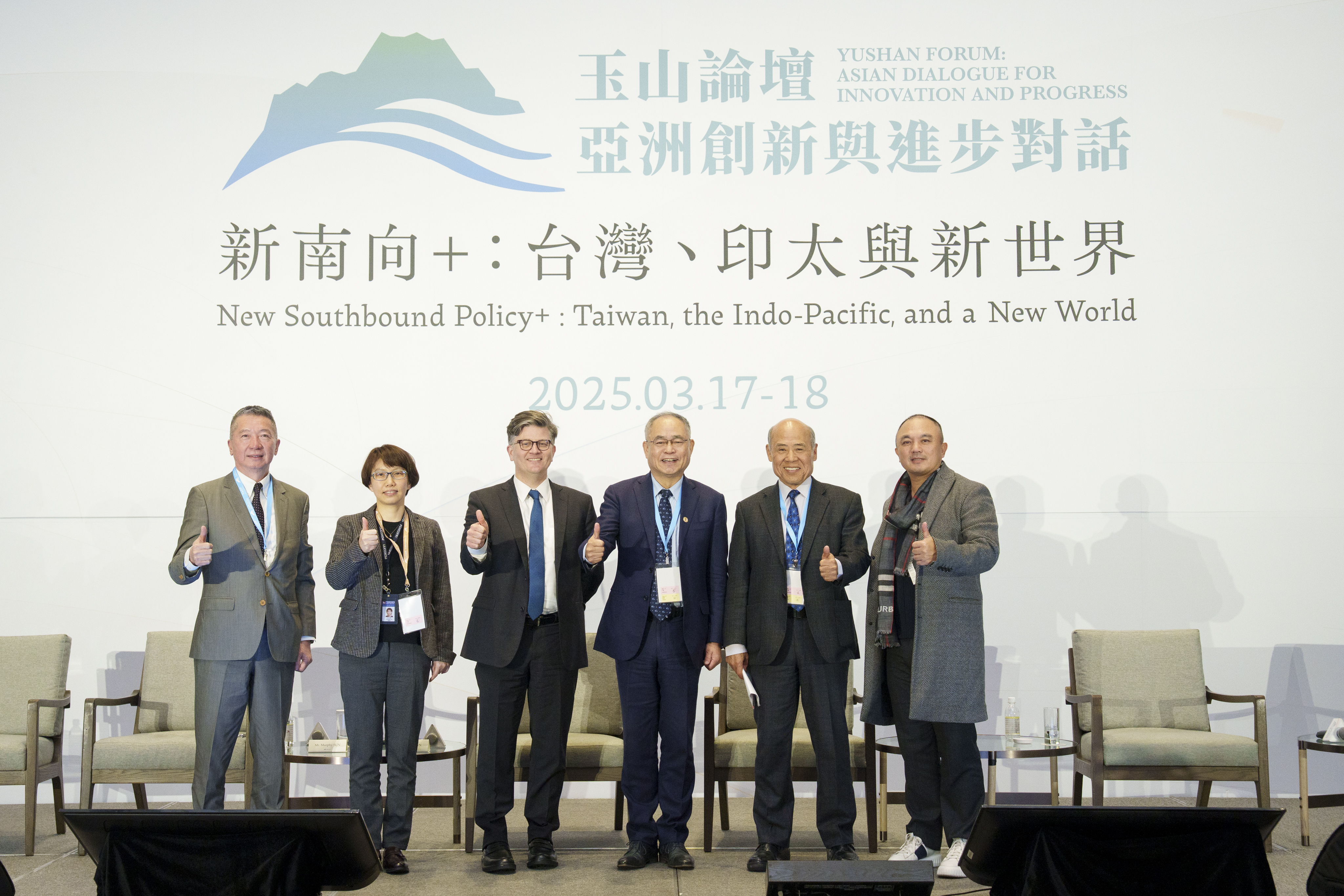
Tonight’s luncheon was hosted by H.E. Dr. LIN Chia-Lung, Foreign Minister of the Ministry of Foreign Affairs, R.O.C. (Taiwan), and featured remarks from Hon. Anna FOTYGA, Former Minister of Foreign Affairs of the Republic of Poland.
The NSP+ Special Exhibition: Celebrating Partnerships & Friendships, a highlight of this forum, gathers 19 key cooperation partners, showcasing Taiwan’s significant achievements under the New Southbound Policy (NSP) across multiple sectors. Key exhibitors include the Ministry of the Interior, the Fire Agency Training Center, World Vegetable Center (WorldVeg). The exhibition also covers semiconductor industries (SEMI – International Semiconductor Industry Association), media (Radio Taiwan International), international cooperation (International Cooperation and Development Fund), the arts (National Culture and Arts Foundation and National Symphony Orchestra), and international think tanks. Furthermore, the Malaysian, Indonesian, and Indian representative offices in Taiwan actively participated in the exhibition, bringing local specialty foods and cultural performances, showcasing Taiwan’s collaborative achievements with partner countries in the fields of technology, agriculture, and culture.
Tomorrow, March 18, the exhibition will welcome key think tanks and NGOs from New Southbound countries, including the Pacific Forum (U.S.), the Asia Centre (Thailand), and representatives from Indonesia and India. Discussions will focus on the future vision for the Indo-Pacific, highlighting Taiwan’s soft power and humanitarian contributions, the role of think tank diplomacy, and Taiwan’s potential in leading the establishment of an International Non-Governmental Organization (INGO) Hub.
